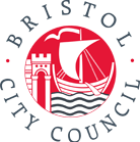Research that reduced cot deaths across the world is recognised as one of UK’s best breakthroughs
- 6th December 2018
A University of Bristol study which showed lives could be saved if babies were placed on their backs – and not their fronts – to sleep, has today been named as one of the UK’s 100 best breakthroughs by Universities UK for its significant impact on people’s lives.
In the mid-1980s the number of babies dying from Sudden Infant Death Syndrome (SIDS) also known as ‘Cot Death’ had increased in many countries, but no one knew why.
In 1987, Peter Fleming, Professor of Infant Health and Developmental Physiology at Bristol set up the Avon Cot Death Study, collecting data on a wide range of factors, including temperature, infections and babies’ sleeping position. He confirmed that all of these factors had effects, but surprisingly, putting babies to sleep on the front was by far the most important, leading to almost a ten-fold increase in the risk of cot death.
Professor Fleming’s work which involved data from Bristol’s Children of the 90s informed the high-profile Back-to-Sleep campaign in the early 90s to ensure babies slept on their back, resulting in a dramatic drop in global incidents of Sudden Infant Death Syndrome.
The research, which helped shape policy in over 30 countries and made a positive difference to mothers and babies throughout the world, also demonstrates how UK universities are at the forefront of some of the world’s most important discoveries.
The UK’s Best Breakthroughs list is part of the Universities UK ‘MadeAtUni’ campaign, which aims to change public perceptions of universities and bring to life the difference they make to people, lives and communities.
The list also highlights the less celebrated but vital breakthroughs that transform lives, including a specially-designed bra to help women undergoing radiotherapy; a toilet that flushes human waste without the need for water; the development of a new scrum technique to make rugby safer; a sports initiative that aims to use football to resolve conflict in divided communities; – and even work to protect the quality of the chocolate we eat.
Professor Hugh Brady, President and Vice-Chancellor of the University of Bristol, said:
“Universities play a vital role in improving people’s lives by providing the knowledge and research that underpin new discoveries which have lasting societal impacts on our health, environment, communities and cities.
“Professor Fleming’s research is one example of this and we are delighted that it has been selected for the UK’s Best Breakthrough list. We are extremely proud of the work of our academics and the difference they make to society.”
Professor Dame Janet Beer, President of Universities UK, said:
“Universities really do transform lives. The technology we use every day, the medicines that save lives, the teachers who inspire – all come from UK universities and the important work being done by academics.
“The UK’s Best Breakthroughs list is a testament to the difference that universities make to people’s lives and we want everyone to join us in celebrating the work they do.”
The UK’s Best Breakthroughs list: 100+ Ways Universities Have Improved Everyday Life was put together in partnership with universities across the UK. As part of the MadeAtUni campaign, every university in the country was invited to nominate the one thing from their institution which they believe has had the biggest impact on people, lives and communities. Over 100 universities submitted a nomination. The entries cover health, technology, environment, family, community and culture and sport.
You can find out more about the UK’s Best Breakthroughs and the MadeAtUni campaign here www.madeatuni.org.uk.






